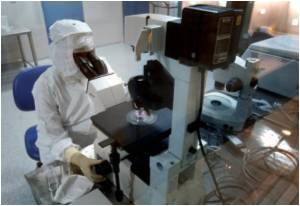Researchers working with zebrafish have identified previously undiscovered high-risk genetic features in T-cell acute lymphocytic leukemia (T-ALL).

Leukemia is the most common childhood cancer; it also occurs in adults. hile there are several subtypes, in all leukemias the body overproduces certain blood cells that have not matured properly.
In this study, the researchers at Huntsman Cancer Institute (HCI) at the University of Utah investigated a particular type of leukemia that results from genetic mutations in T-cells, a type of white blood cell found in both humans and zebrafish.
Using a technique called serial transplantation, the research team studied T-ALL in zebrafish and selected cancer cells from those in which the disease advanced more rapidly for further testing.
This method allowed the research team to zero in on genes associated with T-ALL's most aggressive forms. They then compared these genetic features to samples from human patients whose clinical outcomes with T-ALL are known.
"These results may lead to tests that can show which children with the disease need the strongest chemotherapy to overcome their cancer," said Nikolaus Trede, senior author of the study.
Source-ANI
 MEDINDIA
MEDINDIA




 Email
Email









